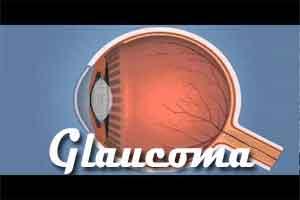- Home
- Editorial
- News
- Practice Guidelines
- Anesthesiology Guidelines
- Cancer Guidelines
- Cardiac Sciences Guidelines
- Critical Care Guidelines
- Dentistry Guidelines
- Dermatology Guidelines
- Diabetes and Endo Guidelines
- Diagnostics Guidelines
- ENT Guidelines
- Featured Practice Guidelines
- Gastroenterology Guidelines
- Geriatrics Guidelines
- Medicine Guidelines
- Nephrology Guidelines
- Neurosciences Guidelines
- Obs and Gynae Guidelines
- Ophthalmology Guidelines
- Orthopaedics Guidelines
- Paediatrics Guidelines
- Psychiatry Guidelines
- Pulmonology Guidelines
- Radiology Guidelines
- Surgery Guidelines
- Urology Guidelines
Vitamins save you from Glaucoma worsening

A healthy lifestyle, consisting of balanced nutrition, moderate exercise, and appropriate rest is an important part of your overall health and well-being and can help prevent illness too. A recent study specifically suggests that diet that includes ple...
A recent study suggests that a diet that includes plenty of green, leafy vegetables may lower the risk of glaucoma.
In general, I recommend that my patients include nutrient-rich foods such as fruits and vegetables as part of a healthy diet. A healthy lifestyle, consisting of balanced nutrition, moderate exercise, and appropriate rest is an important part of your overall health and well being and can help prevent illness too.
The best way to ensure that you're getting all of your essential vitamins and minerals is to eat a balanced diet that includes fruits and vegetables they are a primary source of carotenoids, which can have overall benefits for vision health. Certain fruits and vegetables with higher vitamin A and C content have been shown to reduce glaucoma risk as well. Some of the most helpful fruits and vegetables for healthy vision are: collard greens, cabbage, kale, spinach, Brussels sprouts, celery, carrots, peaches, radishes, green beans, and beets.
Because oxidative stress is associated with damage to the optic nerve in glaucoma, antioxidants may help to prevent further injury. Dietary sources of antioxidants include pomegranate, acai berries, cranberries, dark chocolate, black and green tea, bilberry, lycopene (from tomato products), dark green leafy vegetables like kale and spinach, and flax seeds.
Any specific nutritional deficiencies in your diet can be addressed with supplements that include Vitamins A, B-complex, C, and E as well as the minerals Magnesium, Calcium and Zinc. However, there is no convincing data that vitamin supplements help to prevent glaucoma. I recommend that patients take a general multivitamin if they are uncertain whether their daily nutritional needs are met.
While good nutrition plays a role in disease prevention and overall health, it is not a treatment for glaucoma. Certain herbs such as ginkgo and bilberry may even increase the risk of bleeding with glaucoma surgery. Given the breadth of nutritional supplements available over the counter, it is important to discuss with your eye doctor all prescription, herbal, vitamin, mineral, and over the counter remedies you currently take. Talk to your doctor about any other questions related to glaucoma and your diet, exercise, and lifestyle choices.
Article by Amish Doshi, MD.
Dr. Doshi is a glaucoma specialist at Kaiser Permanente Northern California. He serves as an editor of the Gleams newsletter for Glaucoma Research Foundation

Disclaimer: This site is primarily intended for healthcare professionals. Any content/information on this website does not replace the advice of medical and/or health professionals and should not be construed as medical/diagnostic advice/endorsement or prescription. Use of this site is subject to our terms of use, privacy policy, advertisement policy. © 2020 Minerva Medical Treatment Pvt Ltd